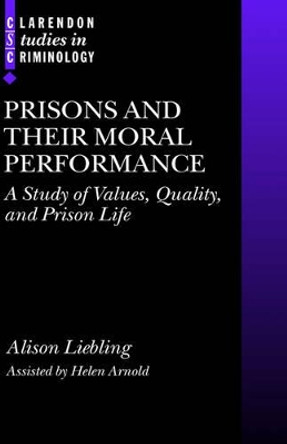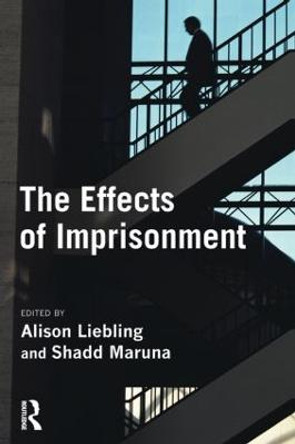This book constitutes a critical case study of the modern search for public sector reform. It includes a detailed account of a study aimed at developing a meaningful way of evaluating difficult-to-measure moral dimensions of the quality of prisons. Penal practices, values, and sensibilities have undergone important transformations over the period 1990-2003. Part of this transformation included a serious flirtation with a liberal penal project that went wrong. A significant contributory factor in this unfortunate turn of events was a lack of clarity, by those working in and managing prisons, about important terms such as 'justice', 'liberal', and 'care', and how they might apply to daily penal life. Official measures of the prison service seem to lack relevance to many who live and work in prison and to their critics. The author proposes that a truer test of the quality of prison life is what staff and prisoners have to say about those aspects of prison life that 'matter most': relationships, fairness, order, and the quality of their treatment by those above them. The book attempts a detailed analysis and measurement of these dimensions in five prisons. It finds significant differences between establishments in these areas of prison life, and some departures from the official vision of the prison supported by the performance framework. The information revolution has generated unprecedented levels of knowledge about individual prisons, as well as providing a management reach into establishments from a distance, and a capacity for 'chronic revision', that was unimaginable fifty years ago. Another major transformation - the modernisation project - brought with it a new, but flawed, 'craft' of performance monitoring and measurement aimed at solving some of the problems of prison management. This book explores the arrival and the impact of this concept of performance and the links apparently forged between managerialism and moral values.
About the AuthorAlison Liebling is a University Lecturer and Director of the Prisons Research Centre at the Cambridge University Institute of Criminology. She is also a Fellow of Trinity Hall, Cambridge. Helen Arnold is at the Cambridge University Institute of Criminology.
ReviewsAlison Liebling has a penchant for work in which she leaves no scholarly stone unturned. The result is truly awesome...there are conceptual sections of striking originality...a seminal contribution to the prison literature, featuring an exciting new perspective... * Hans Toch, University at Albany, State University of New York *
a fuller and more interesting analysis of the complexity of [the] prison community than anything I have read previously * Phil Wheatley, Director General, HM Prison Service *
...outstanding...it gets right to the heart of what I think prisons are all about. * Martin Narey, Commissioner, Correctional Services *
...this book has produced a tool that is already making a real difference ... there is no doubt that this is a major achievement. ... Ultimately it is the real-life impact of this book ... which is likely to confirm Liebling's place in the prison and academic communities. * Jamie Bennett, Prison Service Journal *
...a brave, thoughtful and inspiring book....We take for granted the values of a prison and its staff at our peril....Those who work inside prisons...will celebrate this work... * Tim Newell, Prison Service Journal *
Book InformationISBN 9780199291489
Author Alison LieblingFormat Paperback
Page Count 592
Imprint Oxford University PressPublisher Oxford University Press
Weight(grams) 1g
Dimensions(mm) 213mm * 139mm * 32mm






